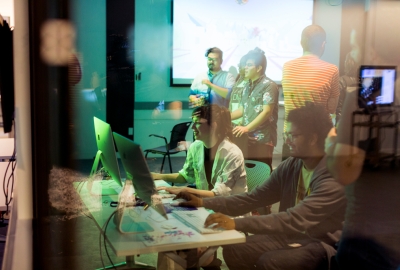Spatial data arise when information collected on units that reside in different locations. Common examples include geology, criminology and epidemiology, where the goal may be to identify patterning or clusters (;hot spots') in the outcomes across the terrain being examined. In the social sciences, a similar set of questions and techniques are required, for example in studies of homelessness, poverty, environmental justice, and education. However, spatial data present a novel set of exploratory and modeling challenges, given the unique way in which outcomes are related (correlated) with each other through proximity. This course is an overview of the methods needed to analyze data for which it is suspected that the spatial component plays an important role.
Course #
APSTA-GE 2015
Credits
2
Department
Applied Statistics, Social Science, and Humanities


